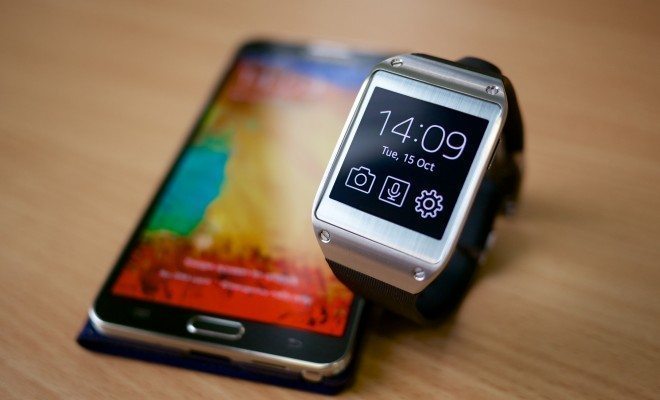 Image courtesy of [Kārlis Dambrāns via Flickr]
Image courtesy of [Kārlis Dambrāns via Flickr]
News
Smartwatch Scare: Will Schools Ban Watches to Prevent Cheating?
In a lot of ways it’s easier than ever for students to cheat on exams. Many students now have small handheld devices that we can use to access pretty much the whole of human knowledge–I’m talking about smartphones, of course. Smartphones have been banned from our classrooms, particularly during exam time, since they became popular. But now schools are trying to keep up by banning the latest form of mobile technology: smartwatches. For some schools, the easiest way to do that is to ban watches altogether.
Right now, the bans on watches seem to be catching on in the United Kingdom, with the University of London and London’s City University both banning the accessory.
It makes total sense that a school would want to ban smartwatches. They could obviously be used to store notes or cheat sheets that could be pulled up with just a flick of the finger. But it goes further than that–the whole idea of the technology is that it acts as a sort of extension of a smartphone. You can set them up so they give you certain notifications–for example, emails, or text messages. So, you could have a friend text you information at a particular time. Or, more simply, set up a timed email or message to send you information at a particular time during your test. Depending on what watch you have, you could also look up information during the test itself.
Some schools have banned the smartwatches themselves. Weber State University, for example, a college in Utah, has banned smartwatches during tests. It’s not just colleges, either. The College Board, the organization that runs SAT testing, has already banned them as well.
Why would schools ban all wrist watches though, in the hopes of catching just a few students who have smartwatches and hope to use them to cheat? Well, smartwatches look pretty snazzy, pretty much like real watches. If you’re not familiar with a smartwatch, as some professors may not be, it would be difficult to figure it out by just glancing at the device. It would also be a tough task for professors who teach large lecture halls with hundreds of students, and end up being a waste of time.
That being said, I think there are definitely downsides to a ban on watches as well. For one, it’s a pretty common accessory–it would be easy to forget to take off a watch the day of an exam. Secondly, any classrooms that banned watches would basically have to ensure that a clock is present in the classroom. Being able to manage time effectively is an important testing skill–many professors design tests that will take up more time than the class is allotted, if you aren’t careful. While banning watches may prevent incidental cases of cheating, it’s simpler said than done.
This is yet another example of the ways in which technology, while great, can run straight into commonsense rules. While smartwatches certainly are a threat to the integrity of our classrooms, schools will have to be very careful when it comes to figuring out the right way to mitigate that danger.








Comments